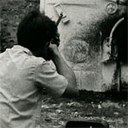0051 Poetic Recuperations: The Ideology and Praxis of Nouveau Réalisme
Identifiers (Article)
Identifiers (Files)
Abstract
Taking previously un-translated writings of critic Pierre Restany as a primary source, this article demonstrates how his vision for the Nouveau Réaliste movement of the 1950s and 1960s demands a detailed and theoretical (rather than historically contextual) exploration of its attempt to reconcile visual art with the quotidian. Accordingly, Bürger's criticism of the historical and neo-avant-gardes is weighed against theories of aesthetics and politics from Adorno to Rancière. In addition, Heidegger's work on the art object, alongside Benjamin's interest in Hölderlin, serves to inform an analysis of Restany's investment in a concept of the 'poetry of the real'. Individual works by Niki de Saint-Phalle, Daniel Spoerri and Yves Klein are also investigated as exemplars of the Nouveau Réaliste ideology. My interest in Restany's life and work stems from recent art world concentrations on the banal or 'infra-ordinary' and its relation to similar concerns within sociology.
Statistics


License

This work is licensed under a Creative Commons Attribution-NonCommercial-NoDerivatives 4.0 International License.



